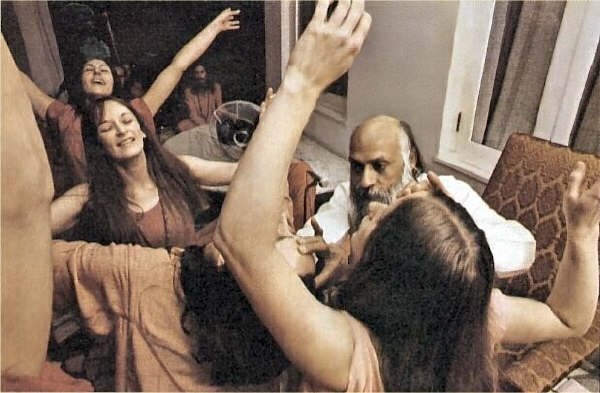Your whole life becomes a duty. It cannot be a celebration, you cannot laugh, you cannot enjoy. It is a burden to be carried. This is what has happened to you. It is a misfortune, but if you understand it you can drop it.
This is the key — the inner part of it is silence, and the outer part of the key is celebration, laughter. Be festive and silent. Create more and more possibility around you — don't force the inner to be silent, just create more and more possibility around you so that the inner silence can flower in it.
That's all we can do. We can put the seed in the soil, but we cannot force the plant to come out. We can create the situation, we can protect, we can give fertilizer to the soil, we can water, we can see whether the sunrays reach or not, or how much sunrays are needed, whether more or less. We can avoid dangers, and wait in a prayerful mood. We cannot do anything else. Only the situation can be created.
That's what I mean when I tell you to meditate. Meditation is just a situation; silence is not going to be the consequence of it. No, meditation is just creating the soil, the surrounding, preparing the ground. The seed is there, it is always there; you need not put in the seed, the seed has always been with you. That seed is Brahma; that seed is atma. — that seed is you. Just create the situation and the seed will become alive. It will sprout and a plant will be born, and you will start growing.
Meditation doesn't lead you to silence; meditation only creates the situation in which the silence happens. And this should be the criterion — that whenever silence happens laughter will come into your life. A vital celebration will happen all around. You will not become sad, you will not become depressed, you will not escape from the world. You will be here in this world, but taking the whole thing as a game, enjoying the whole thing as a beautiful game, a big drama, no longer serious about it.
Seriousness is a disease.
Buddha must have known Mahakashyap. He must have known when he was looking at the flower silently and everybody was restless, he must have known only one being was there, Mahakashyap, who was not restless. Buddha must have felt the silence coming from Mahakashyap, but he would not call. When he laughed, then he called him and gave him the flower. Why? Silence is only the half of it. Mahakashyap would have missed if he had been innocently silent and didn't laugh. Then the key would not have been given to him. He was only half grown, not yet a fully grown tree, not blossoming. The tree was there, but flowers had not yet come. Buddha waited.
Now, I will tell you why Buddha waited for so many minutes, why for one or two or three hours he waited. Mahakashyap was silent but he was trying to contain laughter, he was trying to control laughter. He was trying not to laugh because it would be so unmannerly: What would Buddha think? What would the others think? But then, the story says, he couldn't contain himself any more. It had to come out as a laugh. The flood became too much, and he couldn't contain it any more. When silence is too much it becomes laughter; it becomes so overflooded that it starts overflowing in all directions. He laughed. It must have been a mad laughter, and in that laughter there was no Mahakashyap. Silence was laughing, silence had come to a blossoming.
Then immediately Buddha called Mahakashyap: "Take this flower — this is the key. I have given to all others what can be given in words, but to you I give that which cannot be given in words. The message beyond words, the most essential, I give to you." Buddha waited for those hours so that Mahakashyap's silence became overflooded, it became laughter.
Your enlightenment is perfect only when silence has come to be a celebration. Hence my insistence that after you meditate you must celebrate. After you have been silent you must enjoy it, you must have a thanksgiving. A deep gratitude must be shown towards the whole just for the opportunity that you are, that you can meditate, that you can be silent, that you can laugh.
OSHO


